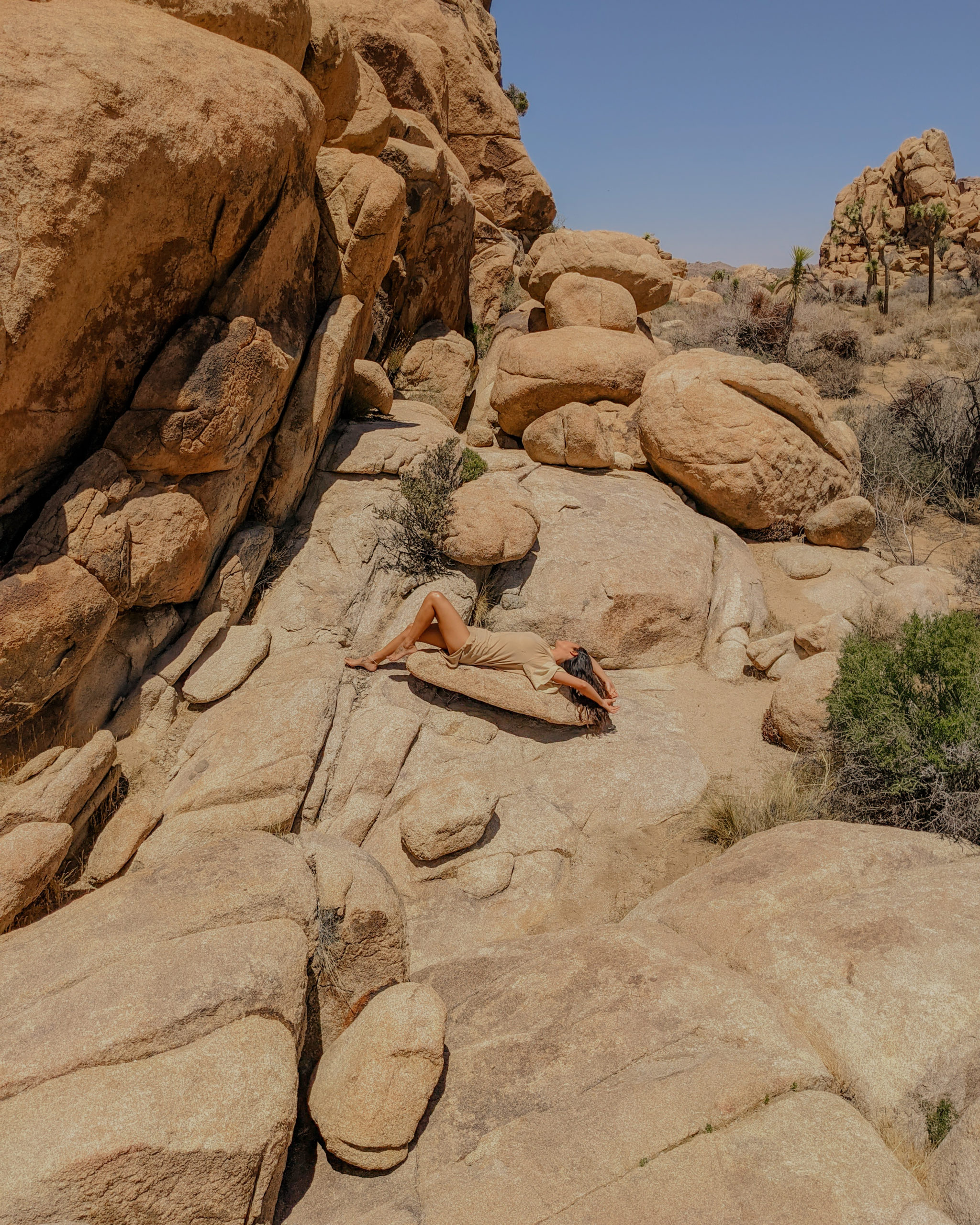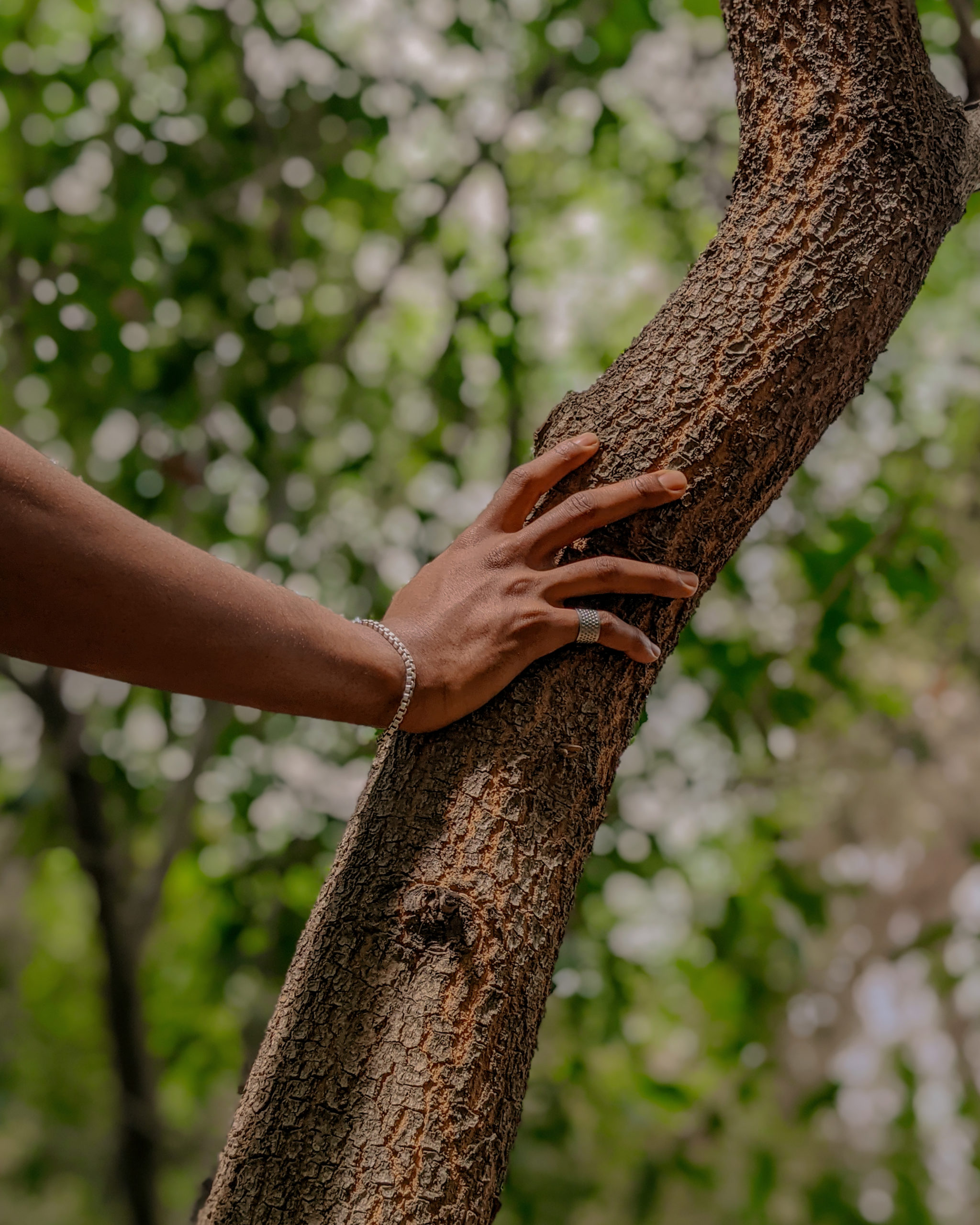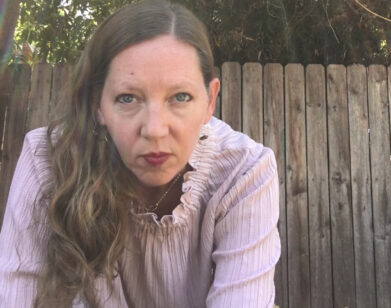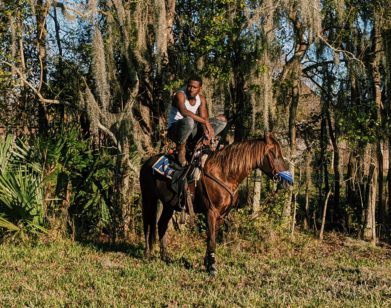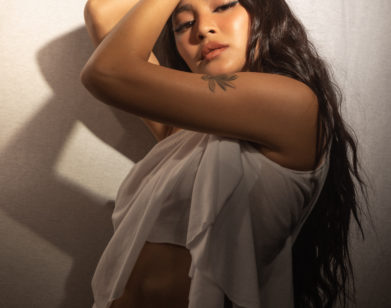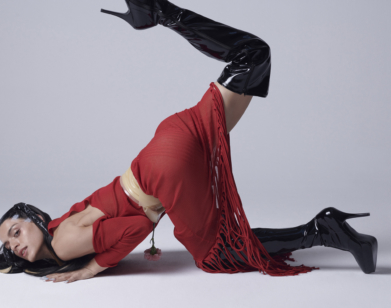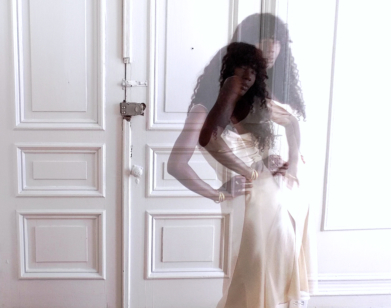Healing Towards Progress
Natalia Mantini Is Making Self-Care Accessible in Her New Photo Series
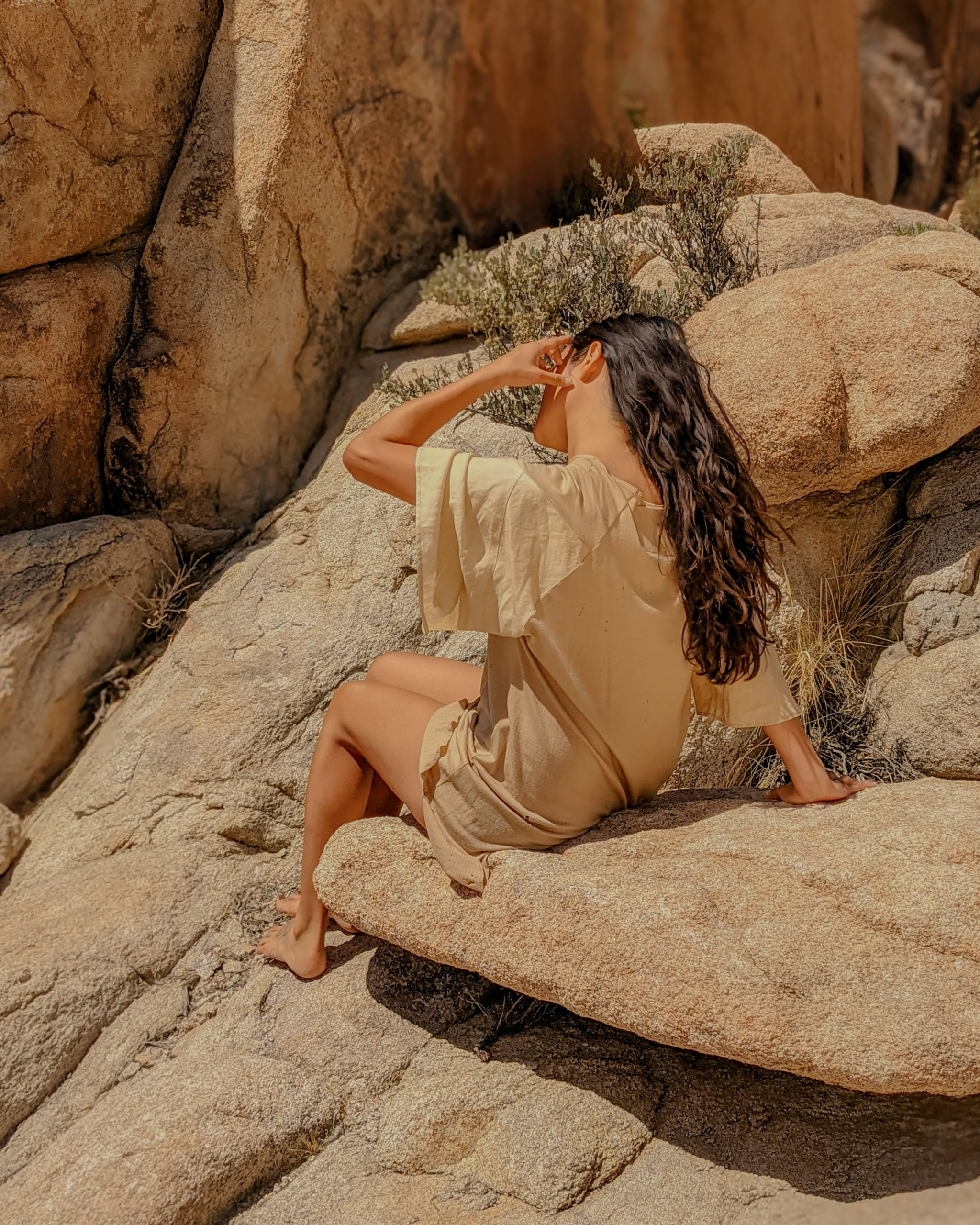
Photos courtesy of Google Pixel and SN37’s Creator Labs.
Picture yourself at peak relaxation. You feel still, meditative, and content, without a care in the world. The scene that comes to mind probably takes place somewhere in nature, right? In her latest photo series titled “Healing Towards Progress,” the New York-based photographer Natalia Mantini explores self-care in the natural world. Shot in California at various oceans, forests, and deserts, the project is part of Google Pixel and SN37’s Creator Labs, an artistic incubator program that highlights emerging artists. Mantini ventured into the wilderness of the West Coast to capture still life at its most serene—from rocks covered in pungent green moss to the worn grooves found on the bark of a tree. Below, Natalia Mantini spoke to Interview about the inspiration behind her project, the complicated relationship between self-care and capitalism, and why we should all be more like mushrooms.
———
JULIANA UKIOMOGBE: To get started, how long have you been working with Creator Labs?
NATALIA MANTINI: This is my second round of doing the Creator Labs project. The first project I released with them was last year in December. I made a portrait series of community members and friends in Los Angeles. My last project and this one differ a lot, in that I didn’t really shoot people’s faces this time. I didn’t shoot people as much as I shot different elements and textures of nature and land. My friend’s hands and the backs of their heads were in it, but it was more focused on the environment versus people—which is very different for me because I shoot so many people and do so much portrait work.
UKIOMOGBE: Why did you choose to title this photo series “Healing Towards Progress?”
MANTINI: I chose that because it’s been such a difficult time for so many reasons over the past year or so, that I do really think that taking time to heal through what we experience is a necessary step in progression rather than an automated need to jump back into things or look as if you are making progress. Healing is a really foundational element in any type of evolution or progression. I shot it this year. I took a good amount of time out because I went to different locations. I went to two deserts, two different forests, to the ocean. So I took a good amount of time with it—being in the environment and multitasking both the benefits that I received personally from being in nature and capturing the series.
UKIOMOGBE: How has the pandemic changed the way that you take care of yourself?
MANTINI: I really understood that taking care of myself is the first step to being available for others. I can’t be as much of a supporter or a contributor towards my community if I’m not working from a place of groundedness and feeling centered. I can do a lot more for others and show up a lot more when I’m taking care of my needs. It feels more effective in being of service to others, and even being able to create. It flows a lot more easily when I’m coming from a more centered space.
UKIOMOGBE: Do you consider nature and self-care to be interconnected?
MANTINI: I definitely do. I’ve been studying different forms of plant medicine and ancestral healing through different teachers, leaders, books, documentaries, thinkers, and organizers. I do really believe in the power of nature’s healing. It’s intrinsic to a lot of people depending on their culture. And for me, it is a part of mine as a Mexican woman. I value and see the healing benefits of nature as very sacred and would like to spread that information accessibly. Nature was here first and we need to work in tandem with her versus against her, which a lot of different folks already have within their background, practice, and ancestry.
UKIOMOGBE: Was self-care a big theme for you growing up? Did your parents or family instill self-preservation into you or was that developed in adulthood?
MANTINI: That was learned into adulthood. Having the ability, resources, time, and money to access self-care is definitely a privilege, which is why I like to look at the natural and intrinsic forms of healing that may be more accessible than what other people have seen as representing self-care. So I personally learned and continue to research this myself as it wasn’t accessible to me as a child.
UKIOMOGBE: I was going to ask you about your thoughts on the commodification of self-care. It’s all about buying products now. It’s not really about getting back to the basics, and I think this photo series really gets to that.
MANTINI: It’s an interesting relationship between navigating self-care and capitalism, which I always try to be mindful of and critical of in my own practice. Since the beginning of the pandemic, I’ve shared resources for accessible forms of healing—whether it’s free, online, or sliding-scale—centering Black Indigenous People of Color and LGBTQ communities. It’s about centering the communities that have the least access to care. So that’s my process with self-care both personally, and what I try to share.
UKIOMOGBE: Tell me about your plant medicine practice.
MANTINI: That has always been somewhat around me, whether consciously or unconsciously. Again, as my family’s from Mexico, different forms of healing have always been around me, whether I was paying attention or not. It’s just always been an element. So I have different friends who are healers, herbalists, doulas, and different types of leaders within the world of plant medicine. I study from people, I take courses, I read books. I study ancestral healing and decolonized plant medicine for myself and for my loved ones. But I make sure to never put anything on anyone. I just learn from my experience and then learn to utilize natural remedies as an alternative form of care. And again, always leaning towards accessibility. So if it can help someone else, that’s great. But it’s just a personal journey that works for me.
UKIOMOGBE: Do you have a favorite photo in the series?
MANTINI: I really liked the photo of my friend’s hands on the moss just because I’m a moss-driven person. I really love moss, I don’t know what that means. But it’s very soothing and it’s in a forest that I go to often to take walks and meditate. So it feels really special. I also love him very much. That’s just a very special image personally, and that texture and the coloring of moss really calls to me. I love moss.
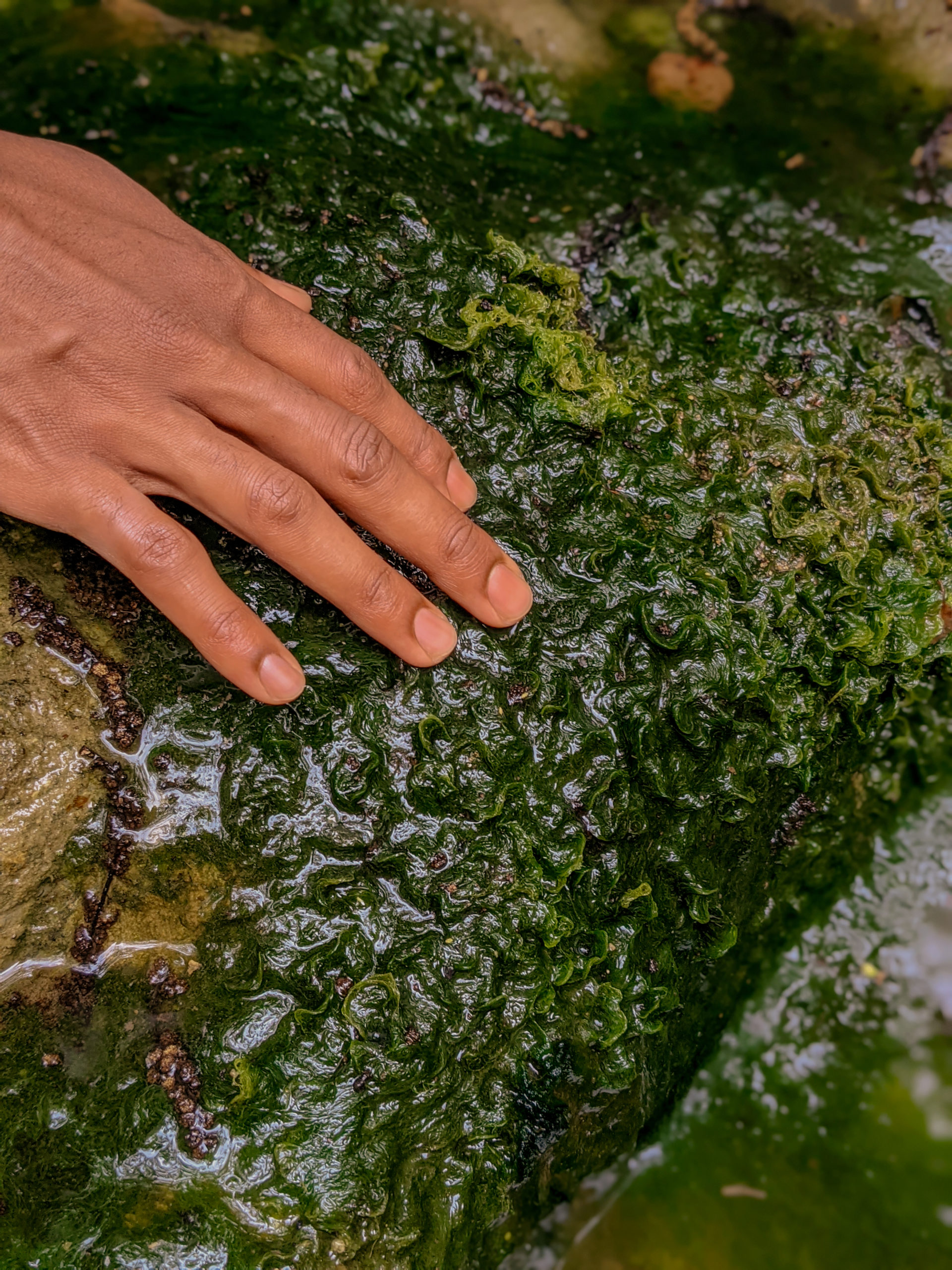
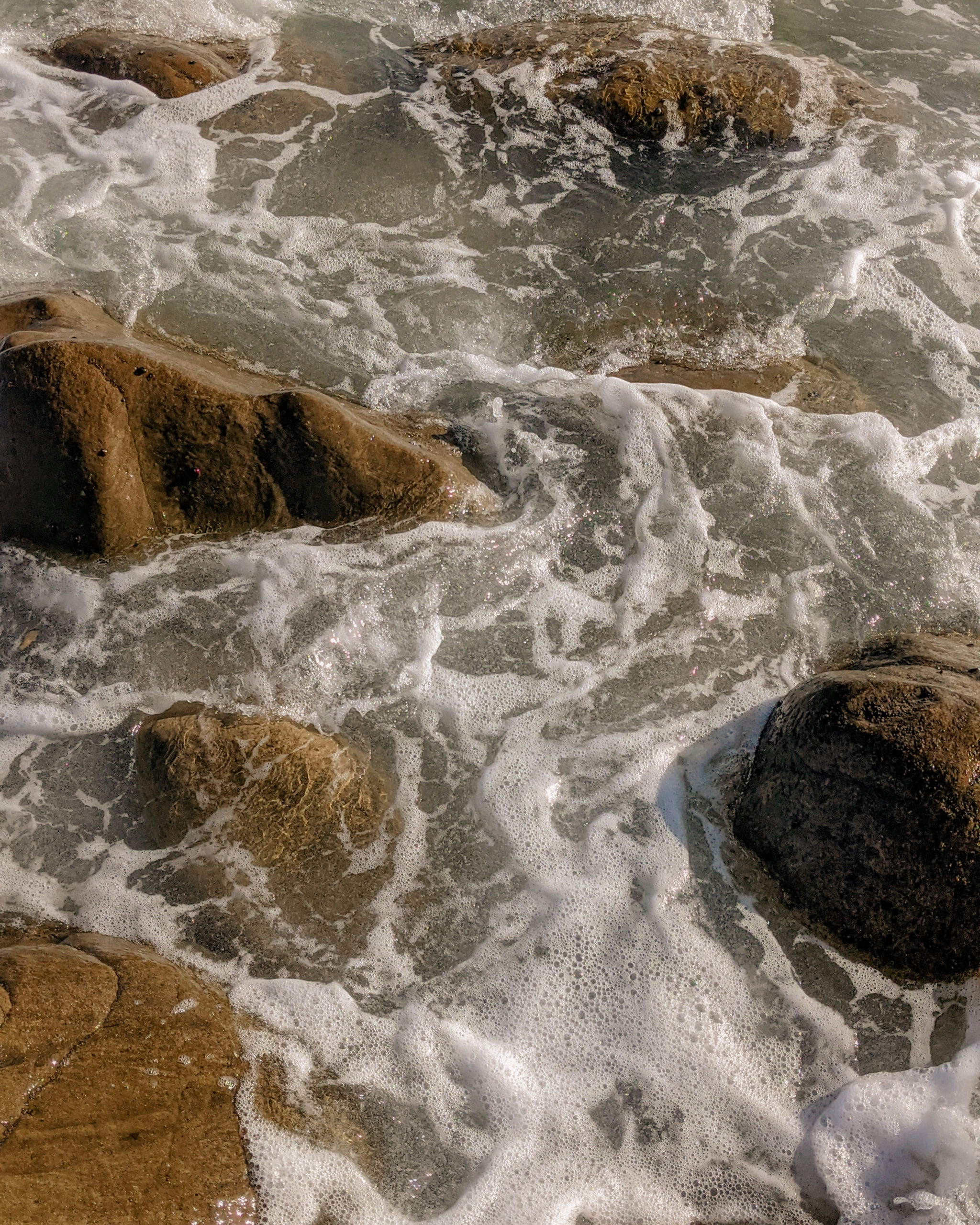
UKIOMOGBE: What’s your sign?
MANTINI: I am totally a Scorpio. I have six placements in Scorpio, a lot in Sagittarius, and my rising is Gemini. But mostly everything else is Scorpio and Sagittarius, which I think shows.
UKIOMOGBE: Scorpio is my “sister sign.” I’m a Taurus.
MANTINI: Oh yeah, we are. You have the earth that I don’t have. I’m all water.
UKIOMOGBE: What artists inform your current work the most?
MANTINI: I get a lot of inspiration from music, books, and paintings. I love the books Forest Bathing by Dr. Qing Li and The Mushroom at the End of the World by Anna Tsing. Mushrooms are everything. We need to follow their way of being. I’m always heavily informed by Björk‘s music. Very Scorpio.
UKIOMOGBE: How do you want people to feel when they look at your “Healing Towards Progress” project?
MANTINI: People have said that it feels very calming and grounding, which is lovely to hear. But I’m open. I want people to feel however they feel.

